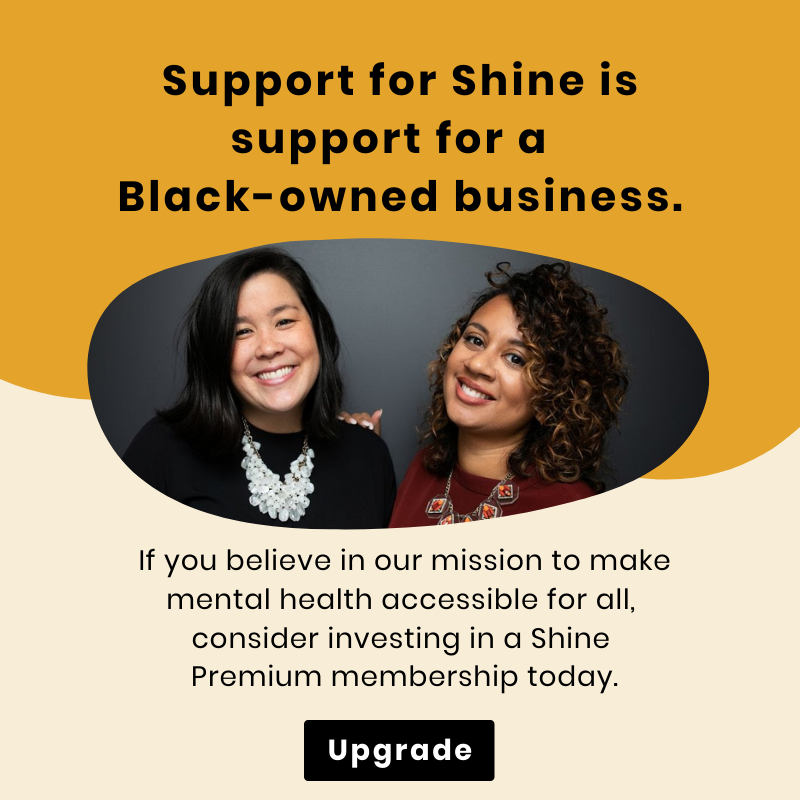If You're Experiencing 'Resilience Burnout,' Read This
Resilience is a trait that helps us cope and bounce back as humans. But for people with marginalized identities, it can feel like our only mode to operate in as we face daily injustices.
While it helps us persevere, it also has historically been used as a stereotype—and that can be more harmful than helpful when it comes to caring for ourselves.
“As a therapist, I’ve learned that Black resilience can also feel like walking a tightrope," therapist and wellness advocate Jor-El Caraballo, L.M.H.C., says. "Because when we’re constantly stereotyped as strong, resilient, people—as ‘superhumans’—we internalize that message. It can prevent us from accepting or leaning into the moments when we aren’t feeling so strong.”
"Black resilience can feel like walking a tightrope. When we’re constantly stereotyped as resilient people—as ‘superhumans’—we internalize that message. It can prevent us from accepting moments when we aren’t feeling so strong.”
- Jor-El Caraballo, L.M.H.C.
When we deny those feelings and try to limit space for anything other than strength, it can contribute to a feeling we like to call "resilience burnout"—exhaustion from having to meet daily adversity and stress with strength.
And the toll of being in a cycle of resilience burnout can be incredibly heavy, especially if you're a Black woman.
According to clinical psychologist Dr. Inger E. Burnett-Zeigler, Black women are more likely than white women to experience “stress related to family, employment, finances, discrimination or racism and safety concerns associated with living in high crime neighborhoods.”
And because of this: "Black women are more likely to have feelings of sadness, hopelessness, and worthlessness,” Dr. Burnett-Zeigler writes in the New York Times. "The psychological wear and tear of being a Strong Black Woman takes a toll on the mind and body."
Resilience burnout: Exhaustion from having to meet daily adversity and stress with strength.
While those more tender feelings might feel necessary to push aside, Caraballo says creating space for them is important.
“Feelings [like fear, guilt, shame, anger, exhaustion] are human for us to have, especially when facing daily racial injustices and carrying the weight of racial trauma from generation to generation,” Caraballo says.
If balancing both your desire to build resilience and honoring your emotions feels confusing, you're not alone. Here are a few ideas to help you start:
Let Go of Shame and Ask For Help
For Black women specifically, Burnett-Zeigler writes that shame surrounding mental health support is one reason why resilience or strength can feel like the only way to operate.
She writes that one of her clients who went through a traumatic experience was embarrassed that she couldn't simply "get over it." Getting help felt like a sign of weakness. "She believed in therapy, in theory, but was ashamed to be the one who needed it," Burnett-Zeigler writes. "She no longer saw herself as the 'strong Black woman' she had once been."
Consider this your reminder that there is no shame in asking for help.
While it can be hard in practice, one way to ease into it is by starting small. What’s something this week you can ask for help with that might ease your burden by 10%? Try bumping that number up as you get more comfortable setting boundaries and leaning on your community to help you instead of relying solely on yourself.
Use Your Breath to Heal
Sometimes it’s easy to forget that your energy supply is not unlimited and unbreakable—and one way to restore when things feel too heavy or overwhelming is by finding more moments of rest and incorporating them into your routine.
Try using your breath as a way to calm your body and your mind as well as create space for difficult feelings.
"There’s power in honestly connecting with how you’re feeling," Caraballo says. "And there’s value in sitting with the moments where you don’t feel so resilient."
Caraballo created a free meditation in the Shine app focused on Resilience Burnout to help you breathe through those feelings together.
Practice Self-Compassion
If you’ve already experienced resilience burnout or want to prevent it, don’t forget a key habit: Adding self-compassion to everything you do.
Ask yourself: How can I show up for myself in a way that honors my energy and gives me room to heal?
It's an ongoing journey, but by asking yourself this question you can start to lighten that load of resilience bit by bit.
“There’s strength in accepting the moments when you don’t feel strong," Caraballo says. "And we can all give ourselves that permission.”
Read next: Black Mental Health Matters: A Resource Guide to Caring For Yours

Shine is supported by members like you. When you buy through links on our site, we may earn an affiliate commission. See our affiliate disclosure for more info.



